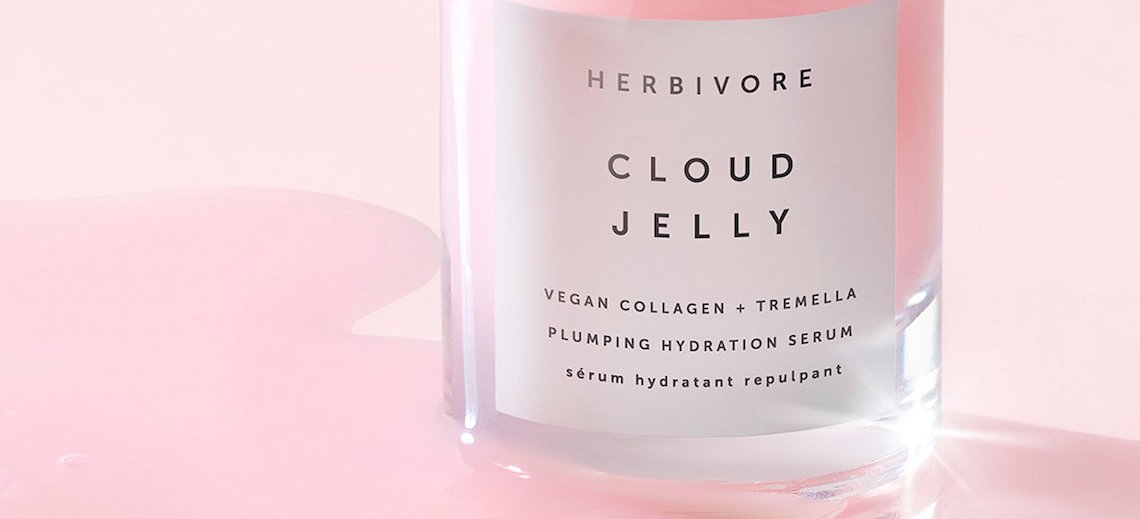One of the buzziest skin-care ingredients of the year could be growing right under your feet: mushrooms.
From snow mushroom to reishi, spore-bearing fungus has been popping up as an ingredient in a growing number of beauty products in the U.S. market. With touted benefits including reduction of inflammation and hydration, mushrooms in skin care are one part of the broader wellness world’s current mushroom obsession. In new Launchmetrics research provided exclusively to Glossy, Herbivore and Biossance are leaders in generating buzz for mushroom-infused skin products in the first eight months of 2021.

Among mushroom serums on the market, Herbivore’s Cloud Jelly Pink Plumping Hydration Serum was the top product based on media impact value (MIV), a proprietary Launchmetrics measurement tool tracking media driven by influencers, print media, celebrities, official third-party partners and a brand’s own media channels.
On its site and retailer product listing descriptions, the Herbivore serum lists tremella mushroom as a main ingredient that functions as “a hyaluronic acid alternative” and has skin-plumping and hydration benefits. The product was launched in April 2020 and is being promoted on social media with the mushroom highlighted as a key ingredient.
Coming in second in MIV was Biossance’s Squalane + Vitamin C Dark Spot serum. The company claims that the white shiitake mushrooms in the product fade dark spots.
Like Herbivore, the other three brands on the list feature tremella as their highlighted mushroom ingredient. Rather than “tremella,” Volition uses the ingredient’s other common name of “snow mushroom” for its Snow Mushroom Water Serum. Three Ships’ and Biophile’s serums also feature tremella.
Used in traditional Chinese medicine and widely used in K-beauty prior to making its way to U.S. brands, tremella has received extensive attention in the U.S. in recent years. Known as the “beauty mushroom” it has been touted as an alternative to the massively popular skin-care ingredient hyaluronic acid.
Mushrooms are one of many ingredient trends that have taken off due to the rise of the “skintellectual” consumer that researches ingredients online.
“In 2020, as we adapted to the new reality and embraced the extra time given to us by lockdown, the importance of self-care grew massively — and with it, the importance of skin care,” said Alison Bringé, CMO at Launchmetrics. Skin-care conversations across media grew by 23% in the second half of 2020, while makeup conversations declined by 9%.
“As consumers spent the time trying out new products and found long-term treatments, skin care became a big part of our self-care routines,” said Bringé. “Looking to treat rather than cover up has become the growing mindset of many consumers. The trend continued beyond lockdown; consumers still seek new products with different treatment properties, having realized the importance of proper skin care.”




